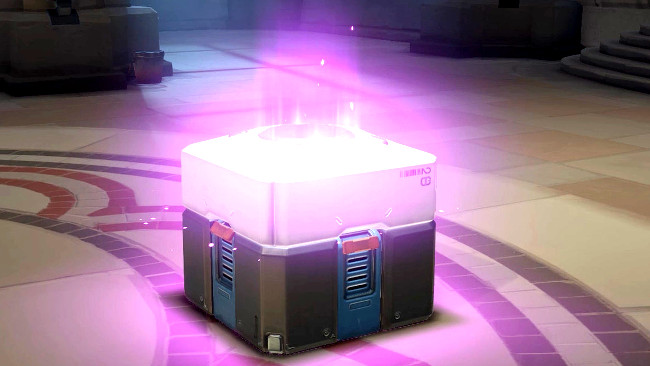
Microtransactions, usually in the form of little chests of random stuff you buy with in-game currency you trade for real money, have been everywhere in games recently. While most so-called “loot box” systems don’t really have much effect on most games, they’ve drawn contempt from lawmakers and gamers alike. But the outrage has finally moved the Entertainment Software Ratings Board, aka the ESRB, to do something about it — namely, to mandate labels when a game has loot boxes.
The ESRB tweeted out a statement confirming they’ll be slapping a label on games with loot boxes:
An update on in-game purchases from your friends at ESRB: pic.twitter.com/pqmfJe0Ywz
— ESRB (@ESRBRatings) February 27, 2018
If you’re unfamiliar, a loot box is a collection of random items, like an egg from a grocery store vending machine. Pop in some in-game currency (some of which can only be bought with actual currency via an online store), and you have a chance to win a rare item.
So if a game might charge you money for something after you pop it in the console or download it to your system, there will be some sort of label to let you (or the parents of whoever is playing on that console) know that it’s a mechanic. It’s not clear yet whether this might affect a game’s overall rating. It also likely won’t pacify parents and advocates who argue that loot boxes are a form of gambling and should be regulated, or banned, under that set of laws.
This is overdue, to some degree. But one has to wonder if the ESRB isn’t saving its members from themselves. Loot boxes are enormously unpopular among gamers since they’re seen as “pay to win,” and attempts to turn video games into virtual vending machines derailed at least two major releases in 2017, and their presence has been sitting uneasily with fanbases elsewhere, even in otherwise beloved games like Overwatch. So if they now have to carry a label, it might help publishers to use the mechanic a bit more sparingly.
(via Twitter)
